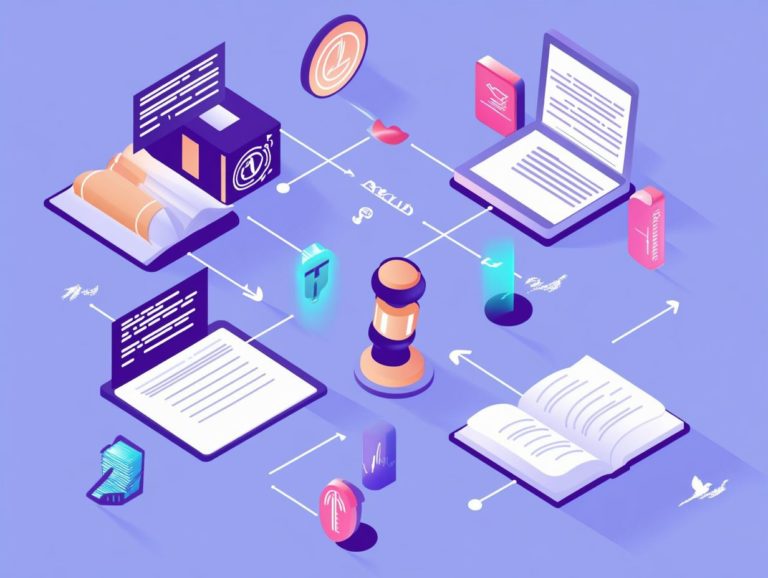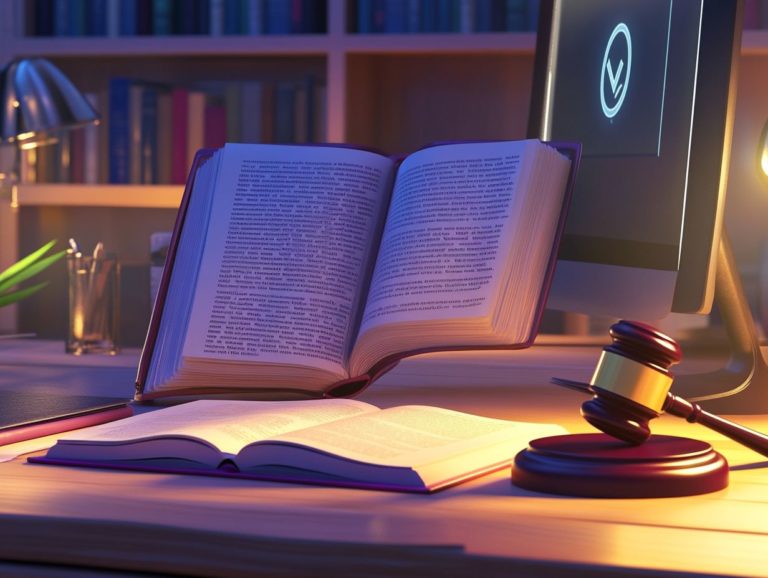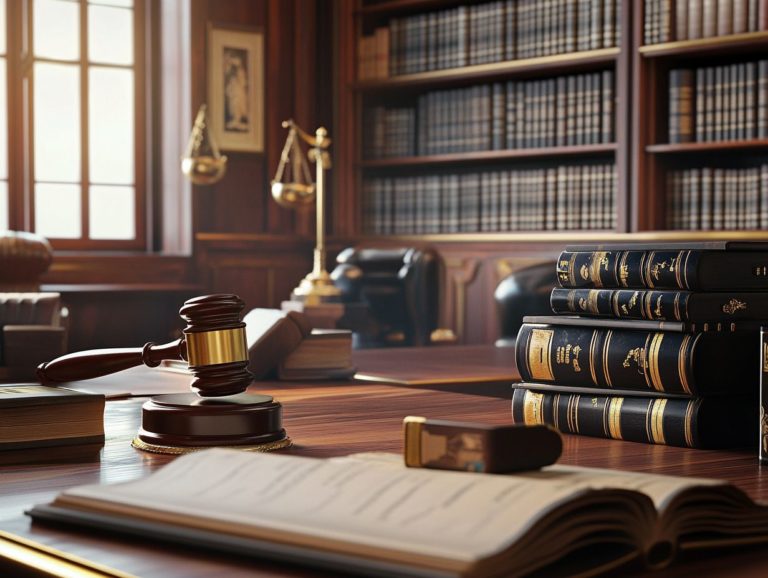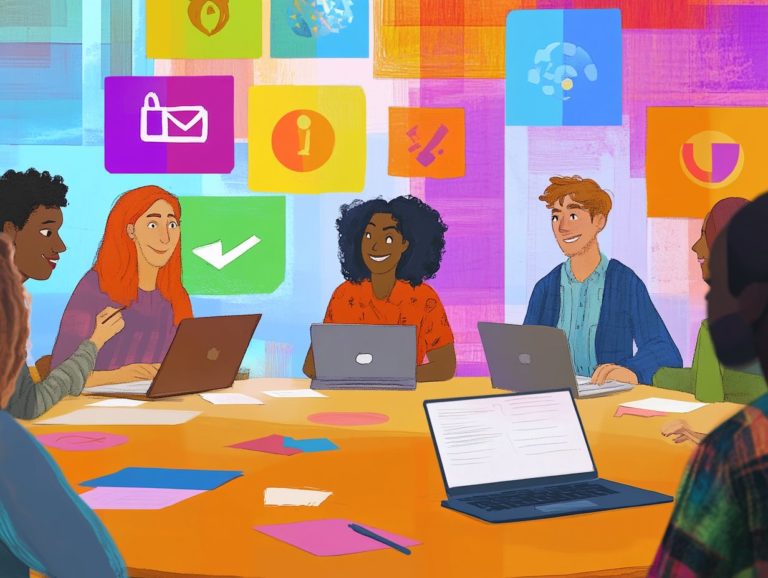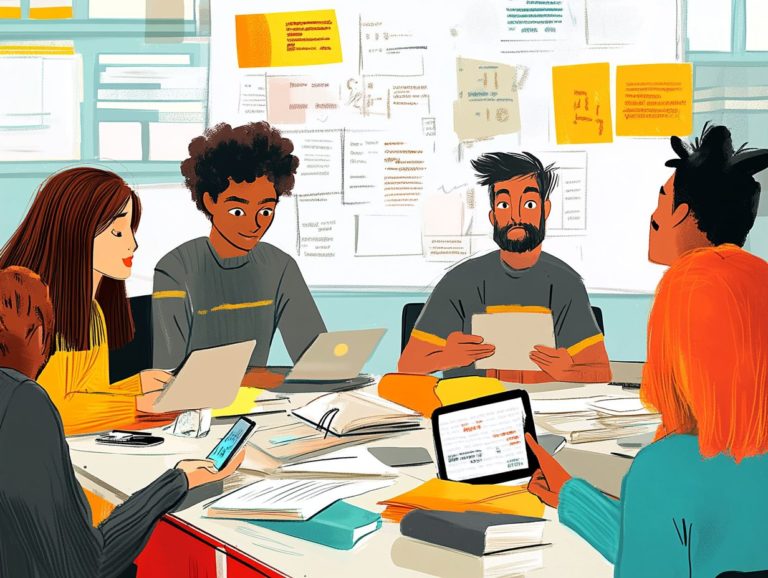The Consequences of Copyright Infringement
Copyright infringement presents a nuanced challenge, one that can carry significant consequences for both creators and users.
This article delves into the intricacies of copyright infringement, examining its various forms both direct and indirect. It highlights the potential legal penalties and reputational harm that may result from such violations while also offering best practices to help you prevent infringement.
Should you ever find yourself facing accusations of copyright infringement, this article is your essential guide to navigating the steps and legal options available to you. Grasping these concepts is vital for anyone maneuvering through today s creative landscape.
Contents
Key Takeaways:
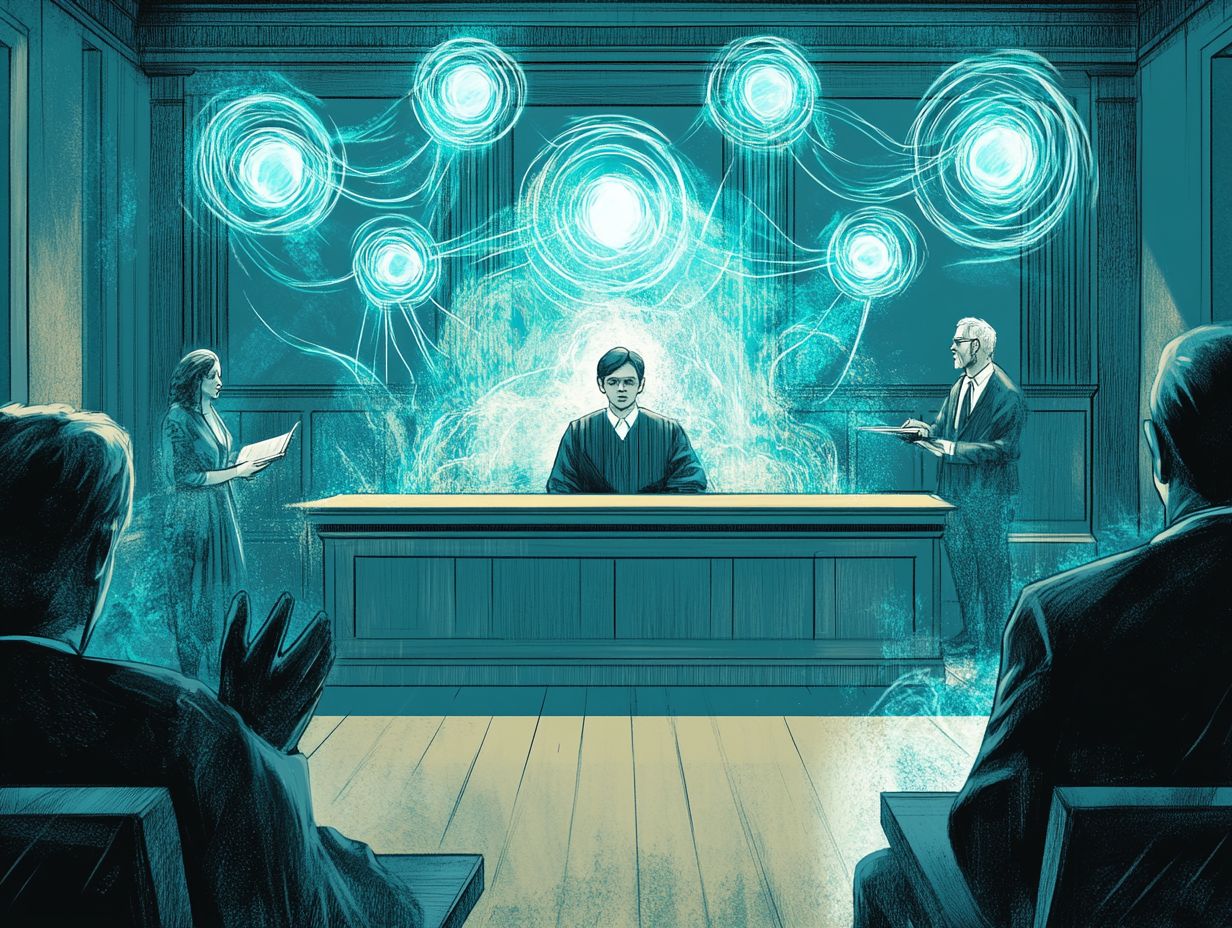
Copyright infringement can result in harsh legal penalties and damage to one’s reputation.
Direct and indirect infringement are the two main types of copyright infringement.
The best way to avoid copyright infringement is to follow proper practices and obtain permission before using someone else’s work.
Understanding Copyright Infringement
Understanding copyright infringement is essential in the realm of intellectual property. It involves violations of the exclusive rights granted to copyright holders under the Copyright Act, which protects original works like artistic and literary creations, software, and various other forms of intellectual property.
This concept is defined by federal law and is crucial for copyright owners seeking legal remedies, including civil actions or statutory damages through the U.S. Copyright Office.
Grasping the implications of copyright infringement is vital for you to navigate the intricate landscape of copyright law effectively.
What is Copyright Infringement?
Copyright infringement refers to the unauthorized distribution, reproduction, or display of copyrighted works, which infringes upon the exclusive rights granted to the copyright owner under copyright law.
This encompasses a variety of violations, such as copying books, music, films, and software without permission, as well as sharing copyrighted material online without authorization.
For example, when you download a movie without paying for it or share a song on your personal blog without securing the rights, you’re stepping into the realm of copyright infringement.
The core of these violations lies in the legal authority granted to creators, allowing them to dictate how their works are used and derive financial benefits from them. Striking a balance between this control and the notion of fair use is essential.
Fair use means you can use small parts of someone else’s work for things like criticism or education without asking, but you should still respect the original creator.
Types of Copyright Infringement
Copyright infringement can be classified into two primary categories: direct and indirect infringement.
Each type carries its own set of legal implications and consequences under copyright law, significantly influencing the liability of those involved. Understanding these distinctions helps you navigate copyright protection more effectively.
Direct Infringement
Direct infringement occurs when you or your entity explicitly violate a copyright owner’s exclusive rights. This includes actions like reproducing, distributing, or publicly displaying copyrighted works without obtaining permission. Such actions can lead to the potential for statutory or actual damages.
This unlawful behavior undermines the creative rights of the original creator and invites serious legal repercussions. For example, if your business uses a copyrighted song in a promotional video without securing the necessary licensing, you could be held liable for infringement.
Under copyright law, the consequences can vary depending on whether the copyright holder chooses to pursue statutory damages, where predetermined amounts are specified by law, or opts for actual damages, which reflect the financial losses incurred. For more details, you can explore what are the consequences of IP theft?
Indirect Infringement
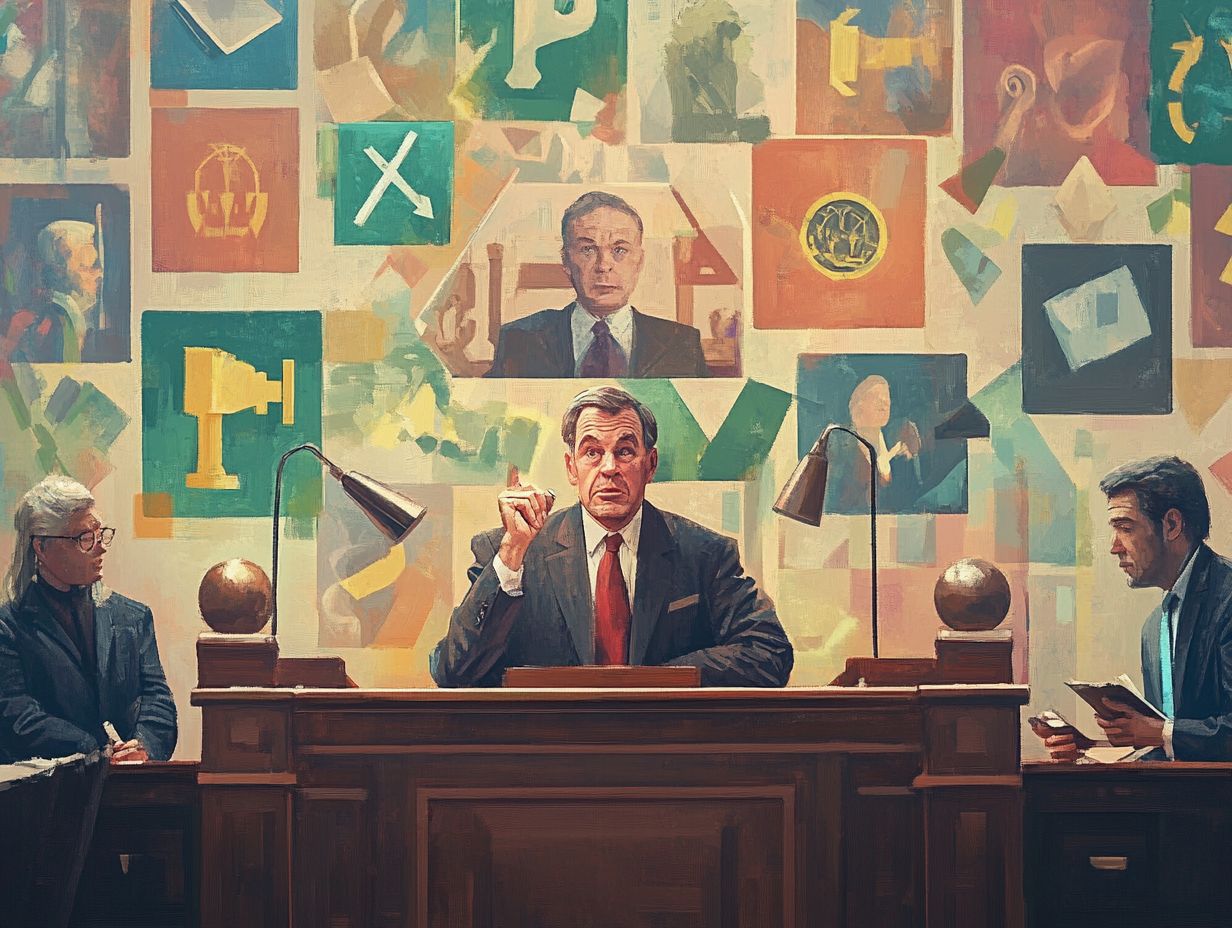
Indirect infringement arises when you or your entity contribute to or facilitate another party’s direct infringement. This typically falls into two categories: contributing to infringement and being responsible for another s infringement.
Understanding this distinction is essential for you as a copyright holder seeking to protect your intellectual property. In cases of contributing to infringement, the third party has knowledge of the infringing activity and provides material support. A notable example is Gordon v. Google, where scrutiny was placed on Google’s role in hosting infringing content.
Being responsible for another s infringement takes a different angle. It concentrates on whether the infringer has the right and ability to control the infringing activity and benefits financially from it, as illustrated in A&M Records, Inc. v. Napster, Inc.
The implications of these doctrines are significant. They empower you to take action against those who contribute to infringement, even if they aren’t the direct infringers.
Consequences of Copyright Infringement
The consequences of copyright infringement can be quite severe, leading to a range of legal penalties that may include civil penalties, statutory damages, and even criminal charges. To learn more about this topic, you can check out what are the consequences of copyright infringement.
These repercussions vary based on the severity and nature of the infringement, and they can have significant effects on both copyright holders and infringers. Understanding the legal consequences of trademark infringement is crucial for all parties involved.
It’s essential to understand the gravity of these implications.
Legal Penalties
Legal penalties for copyright infringement fall into two main categories: civil actions and statutory damages. Civil actions allow the copyright holder to seek damages through the courts, while statutory damages are specific amounts that a violator may owe, regardless of the actual losses.
When pursuing these penalties, the copyright holder typically files a lawsuit detailing how their rights have been infringed. The law outlines what constitutes infringement and the method for calculating damages, as well as the impact of digital piracy on copyright law.
Statutory damages can vary widely. Several factors influence these damages, including the nature of the infringement, whether it was willful, and the extent of harm inflicted upon the copyright holder.
Certain cases may involve higher penalties to discourage future violations. Understanding copyright laws is essential!
Reputational Damage
Reputational damage is a serious consequence of copyright infringement. To fully grasp this issue, it’s important to explore understanding copyright infringement cases, as it can sully your public image and credibility.
This erosion of trust can lead to lost business opportunities and strained relationships within the intellectual property community. The fallout extends beyond immediate legal issues, impacting partnerships, collaborations, and even consumer trust.
Consider a high-profile musician who faced intense backlash after being accused of sampling a well-known track without permission. This controversy resulted in financial penalties and public outrage, leading to diminished album sales and a sense of betrayal among fans.
Similarly, a global brand recently found itself in a precarious position after launching an ad that closely mirrored the work of a smaller designer. This misstep triggered social media backlash and a boycott.
These examples illustrate that in our highly interconnected world, respecting copyright claims goes beyond mere legal compliance. It is crucial for maintaining a positive reputation and nurturing credible relationships across any industry.
Preventing Copyright Infringement
Preventing copyright infringement is crucial for both copyright holders and users. It safeguards original works and intellectual property while promoting a clear understanding of fair use and best practices in copyright law.
By prioritizing these principles, you contribute to a culture that respects creativity and innovation.
Best Practices for Avoiding Infringement
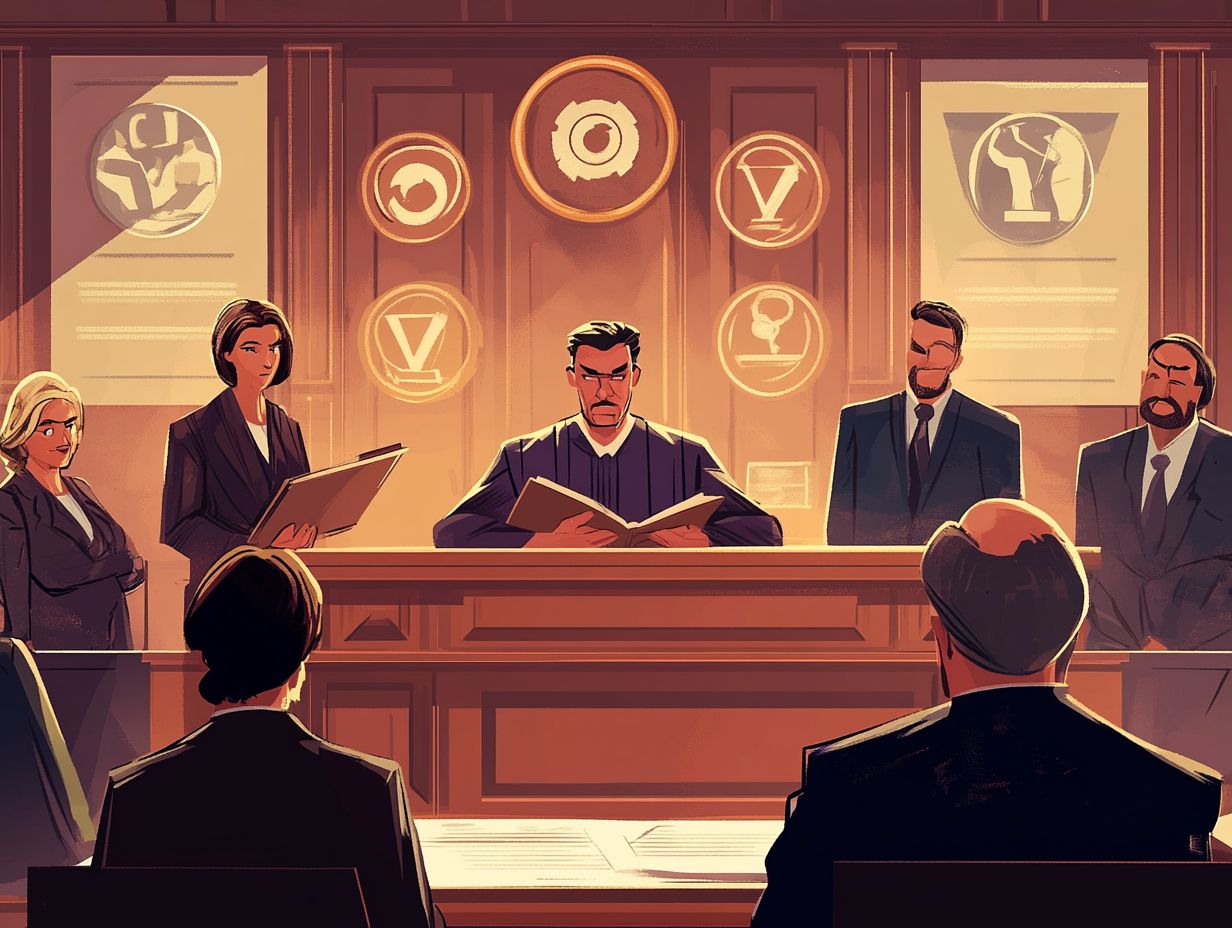
Implementing best practices to avoid infringement is crucial for you and your organization. This ensures compliance with copyright law, respects copyright protection, and allows you to utilize fair use in a responsible manner.
By examining the details of copyright compliance, you can safeguard your creativity and steer clear of costly legal repercussions. Proper licenses are not just a formality; they give you permission to use copyrighted material. Educating yourself about fair use what it is and its limitations will greatly aid in making informed decisions regarding content usage.
Keeping your copyright registrations up to date solidifies your ownership and enhances your legal standing in case disputes arise. These practices empower you to navigate the complex landscape of copyright law with confidence and clarity.
What to Do if Accused of Copyright Infringement
If you find yourself accused of copyright infringement, you must understand your legal options and navigate the copyright claims process with care.
Addressing these allegations swiftly and effectively can significantly reduce potential legal repercussions and safeguard your rights.
Steps to Take and Legal Options
When you encounter allegations of copyright infringement, acting quickly is crucial. Begin by reviewing the claims made against you, gathering relevant evidence, and exploring your legal options under copyright law.
Start this process by meticulously documenting all communications related to the allegation. Keep a detailed record of emails, letters, and conversations. Consulting with experienced legal counsel is vital at this stage. They can provide tailored guidance based on the unique circumstances of your case, helping you navigate the complexities of copyright law.
Consider exploring options for dispute resolution or settlement; this can be a strategic move that potentially mitigates the risks associated with prolonged litigation.
Understanding copyright claims helps you respond effectively and aids in identifying potential defenses you may have. Acting swiftly and thoughtfully is essential, as the repercussions of copyright infringement can be significant.
Frequently Asked Questions
What is copyright infringement?
Copyright infringement is the unauthorized use of someone else’s original work without their permission. This includes copying, distributing, or displaying the work without proper credit or permission.
What are the consequences of copyright infringement?
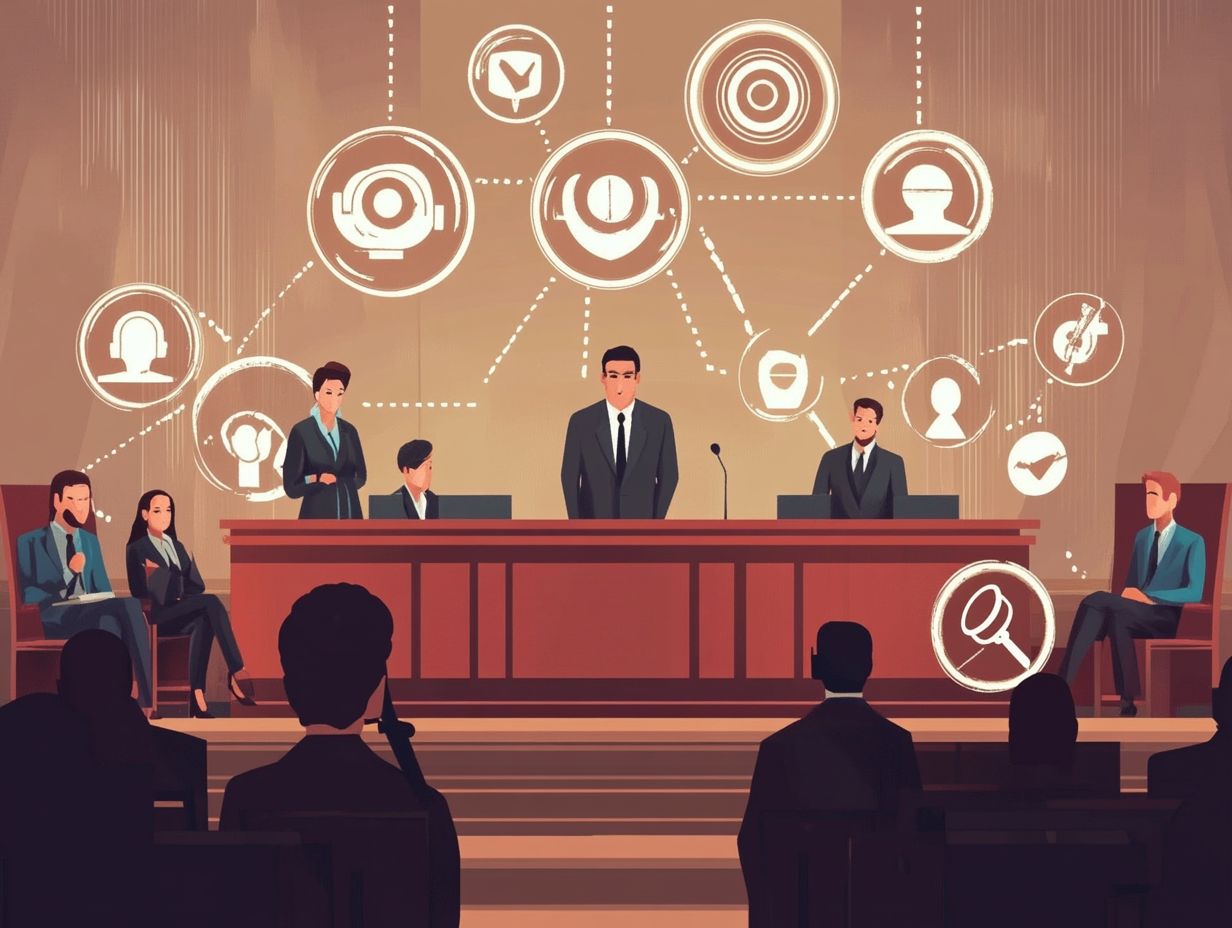
The consequences of copyright infringement can range from legal action, such as being sued for damages, to financial penalties, like having to pay fines or royalties. For a deeper understanding of the potential fallout, explore the consequences of copyright loss, as in some cases, infringement can also result in criminal charges.
Who can be held responsible for copyright infringement?
Anyone involved in the unauthorized use of copyrighted material can be held responsible for infringement. This includes individuals, companies, and organizations.
What are some examples of copyright infringement?
Examples of copyright infringement include downloading or sharing copyrighted music or movies without permission, using someone else’s photographs or artwork without giving credit, and plagiarizing written work without proper citation.
What are the potential damages for copyright infringement?
The potential damages for copyright infringement can vary depending on the severity of the infringement and the laws in the specific jurisdiction. Damages may include financial penalties, injunctions to stop using the copyrighted material, and even imprisonment for criminal copyright infringement.
How can I avoid copyright infringement?
To avoid copyright infringement, always obtain permission from the copyright holder before using their work. This includes obtaining licenses for music or images, properly citing sources in written work, and never using someone else’s work without their permission.
If you suspect copyright infringement or want to learn more, consult legal advice immediately!

